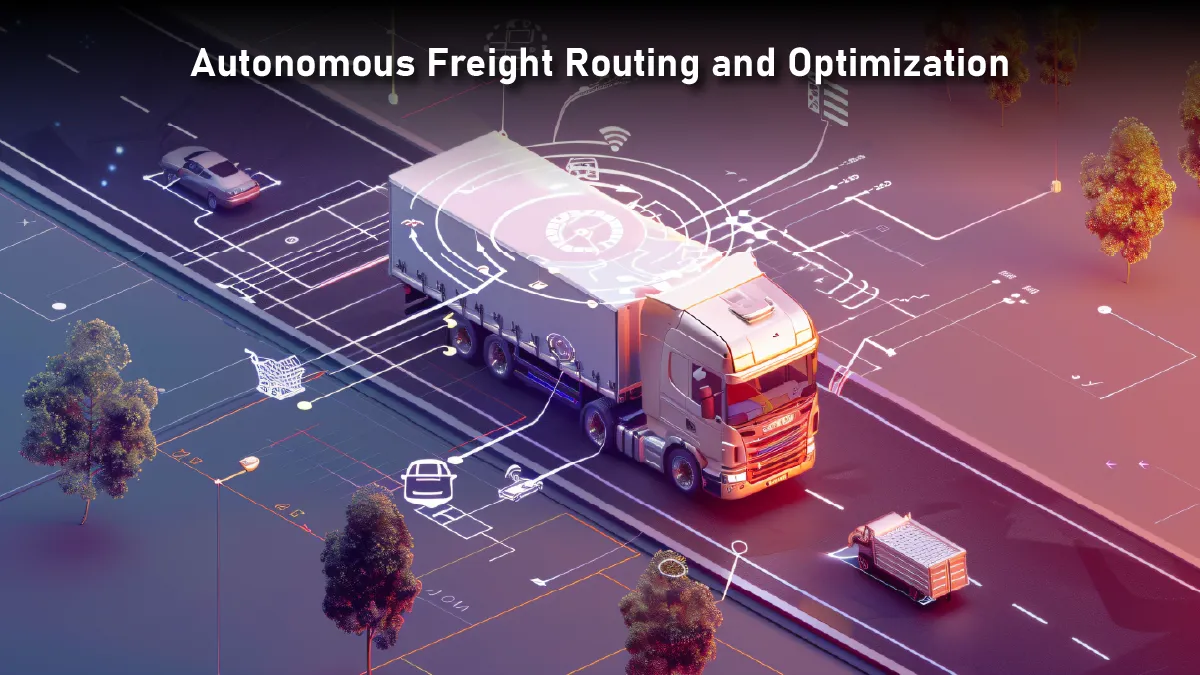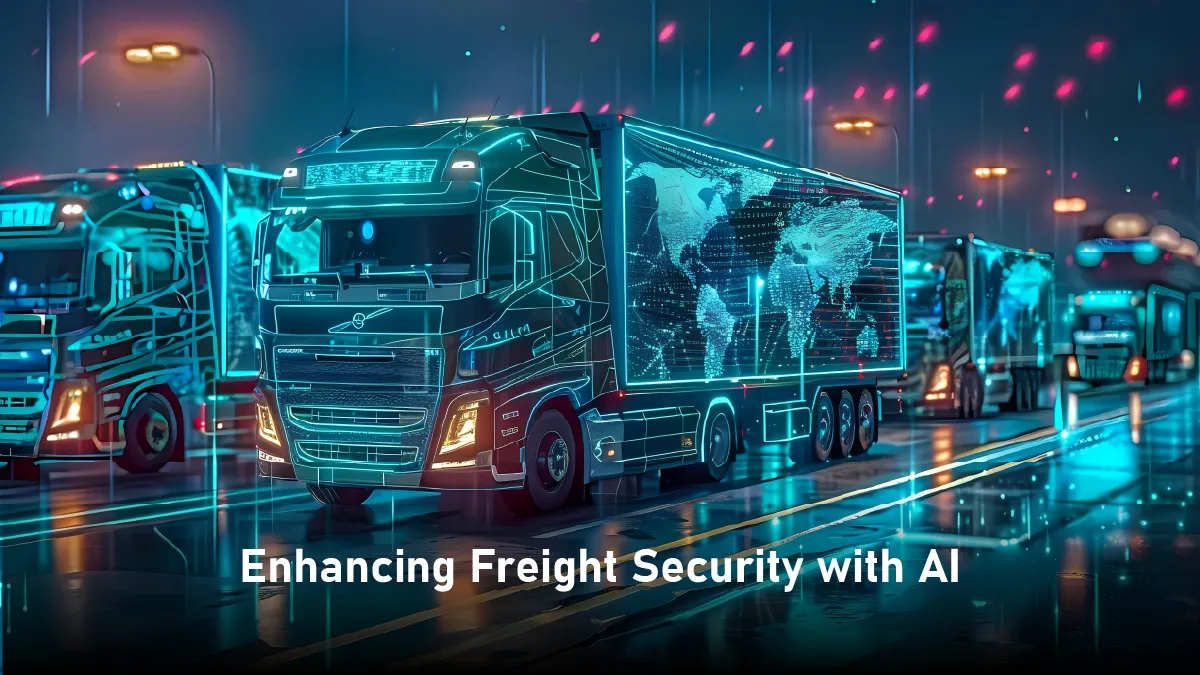The freight industry is changing a lot. Artificial intelligence is transforming how supply chains work. AI boosts efficiency in logistics networks. It cuts costs and improves reliability. This includes route optimization and predictive analytics. Companies must integrate AI in freight management to future-proof their operations. It’s not just an option anymore; it’s a necessity.
The Evolution of Freight Management
Freight management has long been a heavy load to bear. It relied on manual steps, piles of paperwork, and human judgment. This made it slow and time-consuming. Logistics managers often had to work hard. They planned routes, coordinated shipments, and handled surprise shipments. This old method led to inefficiencies, delays, and rising operational costs.
Digitalization has led to big improvements. Transportation management systems (TMS) and enterprise resource planning (ERP) software make logistics easier. These tools relied on static data and manual input. This limited their ability to adapt to real-time changes. AI is closing this gap. It brings automation and predictive intelligence. This helps make smarter decisions and respond in real-time.
Also Read: Nextuple Inc. Announces the Launch of OnePint.ai: Revolutionizing Inventory Management with AI, Autonomous Decision-Making, and Simulations
AI-Driven Predictive Analytics in Logistics
A major use of AI in freight management is predictive analytics. Companies can use machine learning algorithms to analyze past shipment data. They look at weather, traffic patterns, and supply chain issues. This helps them predict delivery times and identify potential bottlenecks.
AI systems can predict busy shipping times and change inventory levels as needed. This ability helps businesses prevent stock shortages and excesses. This ensures goods move smoothly. AI can spot issues in logistics operations. This helps prevent costly delays before they happen.
Autonomous Freight Routing and Optimization

AI-driven route optimization has revolutionized how freight is transported. Traditional route planning used fixed schedules and set paths. It often missed real-time road conditions. AI helps logistics platforms change routes in real-time. They consider live traffic data, weather, and road closures.
Autonomous trucking companies use AI navigation systems. These systems find the best routes, which cuts fuel use and speeds up delivery times. These advancements not only improve sustainability but also enhance overall operational efficiency. AI-powered route optimization cuts down on empty miles. This means trucks don’t return without cargo. It finds backhaul opportunities and links shippers to available freight loads. For instance, Uber Freight’s analysis suggests network optimization can reduce empty miles by as much as 64%—leading to a 23% reduction in drivers’ overall miles.
AI-Enhanced Fleet Management and Predictive Maintenance
Fleet management is another area where AI is making a significant impact. Traditional fleet maintenance follows set service schedules. This can cause unnecessary costs or surprise breakdowns. AI-driven predictive maintenance systems use IoT sensors to check vehicle health. They spot possible mechanical failures before they happen.
AI can analyze engine diagnostics, tire pressure, and fuel efficiency. This helps fleet managers get alerts for service needs. They can address issues before a breakdown disrupts operations. This proactive approach minimizes downtime, extends vehicle lifespan, and reduces overall maintenance expenses. Companies using predictive maintenance have seen fewer unexpected repairs. This change also boosts vehicle availability rates.
The Rise of Autonomous Freight Vehicles
Autonomous trucks are revolutionizing the landscape of freight management. Pioneers like Tesla, Waymo, and TuSimple are steering the future. The logistics industry is gearing up for a dramatic shift. These AI-driven freights effortlessly move along highways, mostly on their own. With enhanced delivery speed, they also slim down labor costs.
While regulatory challenges and safety concerns still exist, the technology is rapidly evolving. Logistics firms are revving up for the future with semi-autonomous vehicles. These smart machines assist drivers in lane-keeping and embrace adaptive cruise control. With collision avoidance technology, they transform roads into safer journeys for everyone. These innovations boost driver safety and efficiency. They set the stage for a future where fully autonomous freight transport is common.
AI-Powered Demand Forecasting and Inventory Management
AI is changing demand forecasting and inventory management. It analyzes large datasets to predict supply chain needs accurately. Traditional forecasting methods often use past sales data and seasonal trends. But they might not consider sudden market changes. AI algorithms can include different factors. These factors are economic indicators, customer buying habits, and geopolitical events. This helps them give a clearer view of demand.
This intelligence helps businesses optimize warehouse storage. It also reduces excess inventory. As a result, products are available when and where needed. Companies can lower storage costs and boost supply chain efficiency by matching inventory with real-time demand.
Enhancing Freight Security with AI

Security is a big concern in freight management. Cargo theft and supply chain weaknesses lead to billions in losses every year. AI is strengthening security protocols by implementing real-time monitoring and anomaly detection. Computer vision and AI surveillance can spot suspicious activities in warehouses. This technology sends alerts before problems get worse.
AI-driven blockchain solutions boost supply chain transparency. They create an unchangeable record of transactions. This helps cut down on fraud and counterfeiting. Integrating AI with blockchain helps logistics companies ensure complete traceability. This boosts trust and compliance in global supply chains.
Overcoming Challenges in AI Adoption
AI in freight management has many benefits, but it also has challenges. High costs, complex data integration, and resistance to change are common barriers. Many logistics firms still use old systems. These need big upgrades to work with AI-powered solutions.
Additionally, concerns over data privacy and cybersecurity pose risks as AI systems rely on vast volume of sensitive information. Strong cybersecurity and data compliance are key for companies wanting to use AI well.
To overcome these challenges, organizations should adopt a phased AI implementation strategy. Starting with pilot programs helps businesses reduce risks. Then, they can gradually increase AI-driven initiatives. This way, they maximize ROI and train employees to adjust to new technology.
The Future of AI in Freight Management
AI technology is advancing quickly. Its role in freight management will grow even more important. Machine learning, robotics, and automation will change how we transport, store, and deliver goods. Future plans might feature drone deliveries using AI, hyperloop freight transport, and more progress in self-driving cars.
Companies using AI in freight management will have a competitive edge in logistics. Using AI boosts efficiency, cuts costs, and sharpens decision-making. This helps businesses confidently handle the challenges of today’s supply chains. The shift from manual to autonomous freight management is here. It’s changing the industry for the better.






